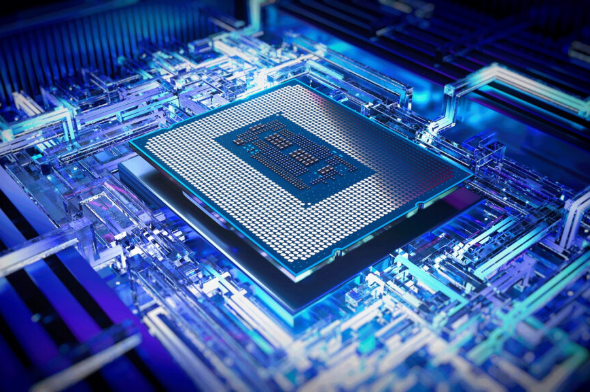Connection to DriversCloud Create a DriversCloud.com account Reset your DriversCloud.com password Account migration
Raptor Lake Refresh: an update on the 14th generation of Intel processors
A "half-new" range due to arrive in late October.
Surprisingly, Intel is planning to split the launch of its autumn 2023 ranges into two parts. On the one hand, we'll be treated to the classic renewal of processors for so-called "desktop" PCs, and on the other to a new range of chips for the mobile market. This is where the problem lies, since the mobile launch is far more innovative than the desktop chips. Mobile components will be designed around the new Meteor Lake architecture, while the new desktop processors will only benefit from the "aging" Raptor Lake. Oh, in absolute terms, the latter isn't that old - it was released in autumn 2022 - but it's still surprising to see Intel favouring low-power components for laptops. Surprising and highly unusual.
The "new" desktop processors scheduled for release this autumn will be based on Intel's Raptor Lake architecture, but this doesn't stop Intel from talking about 14th-generation processors, and since the American company isn't communicating further on these chips, we're keeping our ears open to all the rumours. Alas, we can't say that what we hear reassures us much about the interest of this 14th generation... and perhaps that's precisely why Intel is so tight-lipped. As we told you a fortnight ago, the processors planned for the top end of this generation look exactly like those of the 13th generation. The problem is that this resemblance goes so far that only the Core i7-14700/14700K could - somewhat - distinguish themselves from the series launched at the end of last year. The latest rumors attest to these differences, dashing any last hope of another processor standing out.
At one time, the Core i5-14400 was rumored to have two more cores than the Core i5-13400. Such an upgrade would have given it a comfortable total of 14 cores, making it a significantly more attractive solution than its 13th-generation big brother. Alas, this will not be the case, and the Core i5-14400 will therefore feature the combination of 6 high-performance cores + 4 efficient cores for a total of 10 cores / 16 threads, the same as we already found on the Core i5-13400. The only hope of improvement for this chip lies in the operating frequencies, but the latest rumors suggest that the basic frequencies will be the same, and that you'll have to reach the maximum boost frequency to get a slight improvement, at a maximum of 200 MHz. Admittedly, Intel doesn't like to present a half-complete line-up, but it would probably have been preferable to let the "classic" Raptor Lakes live for another year than to offer what looks more and more like a "stop-gap" generation.







